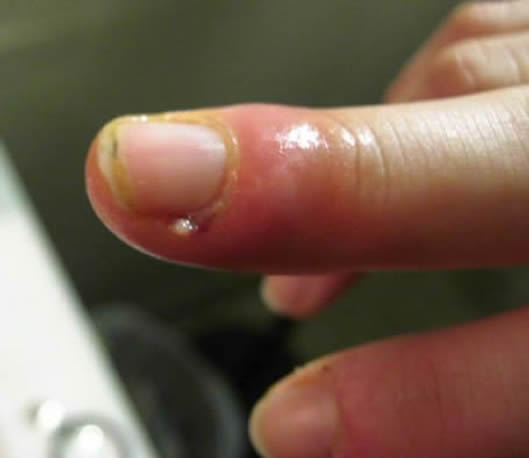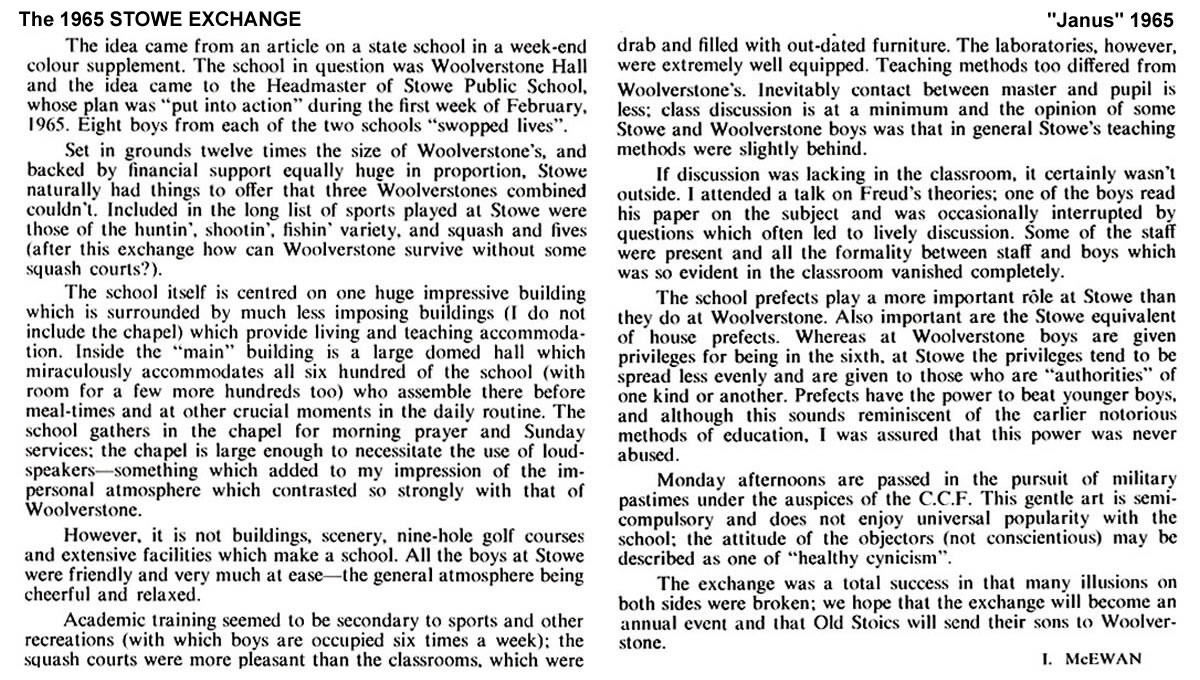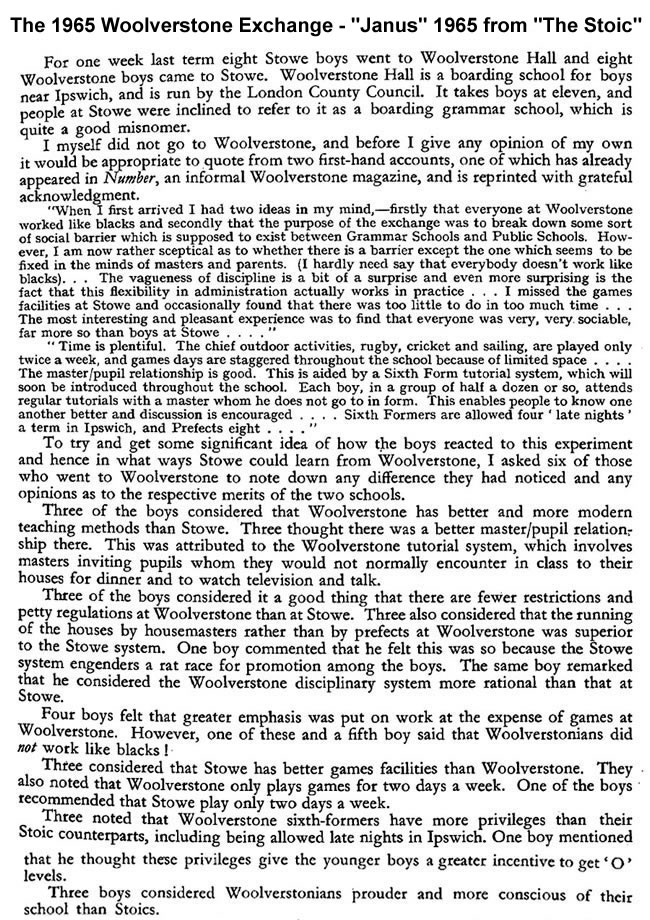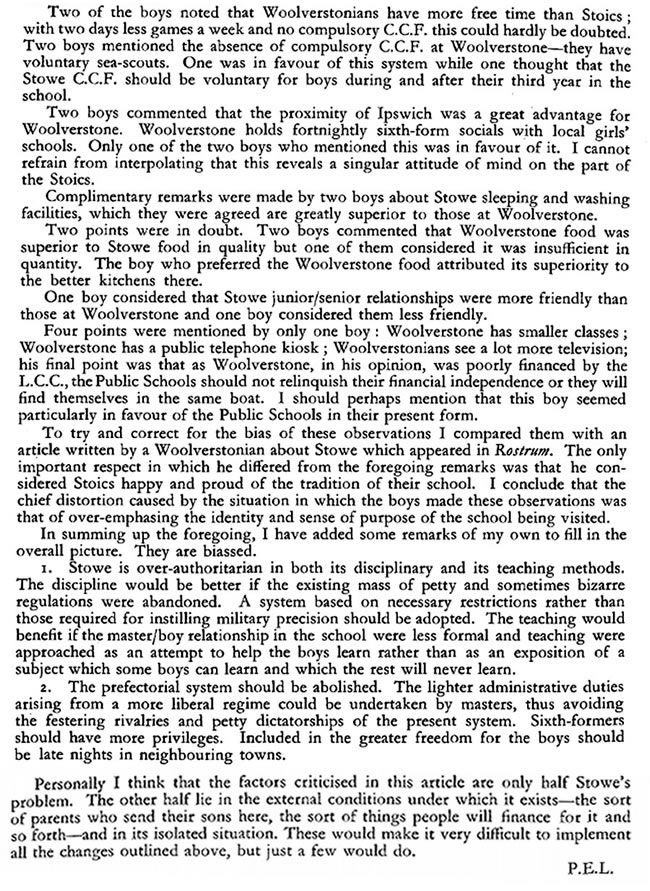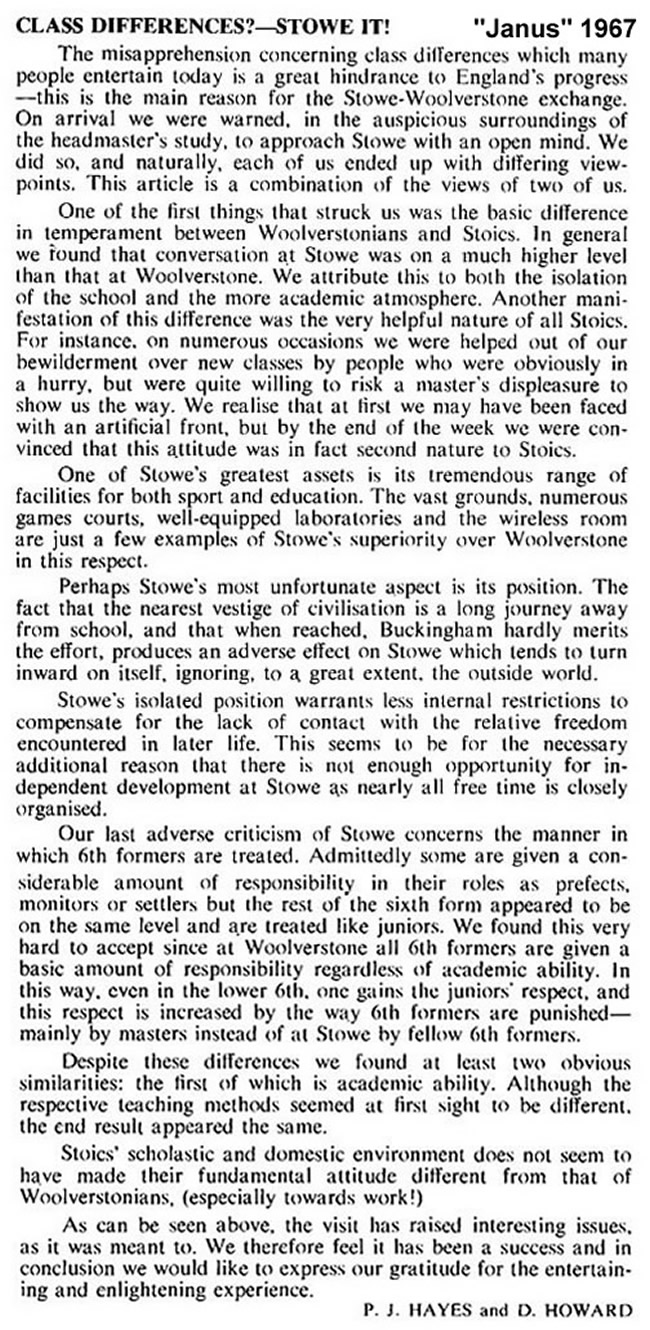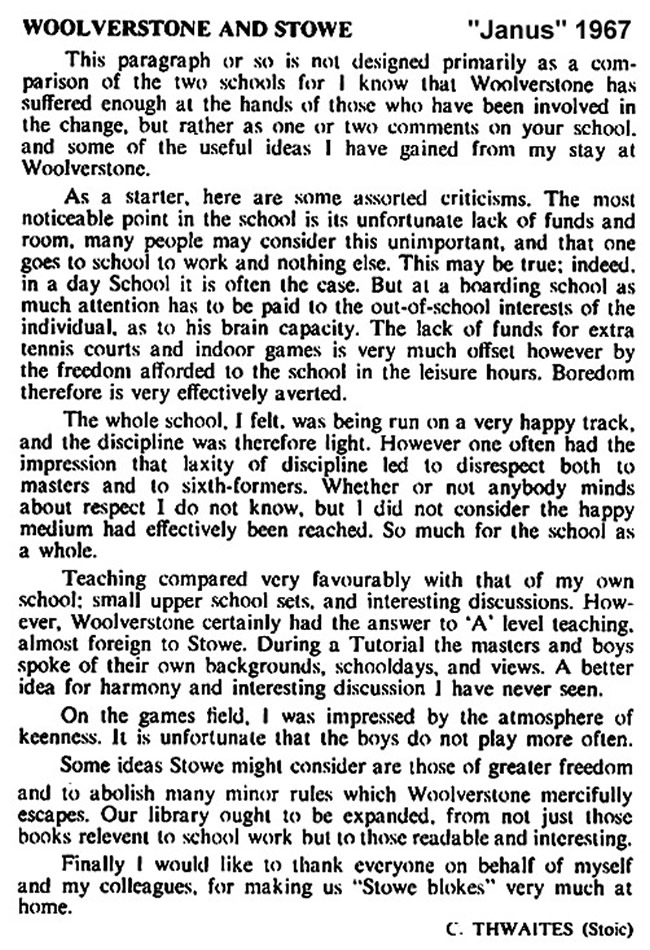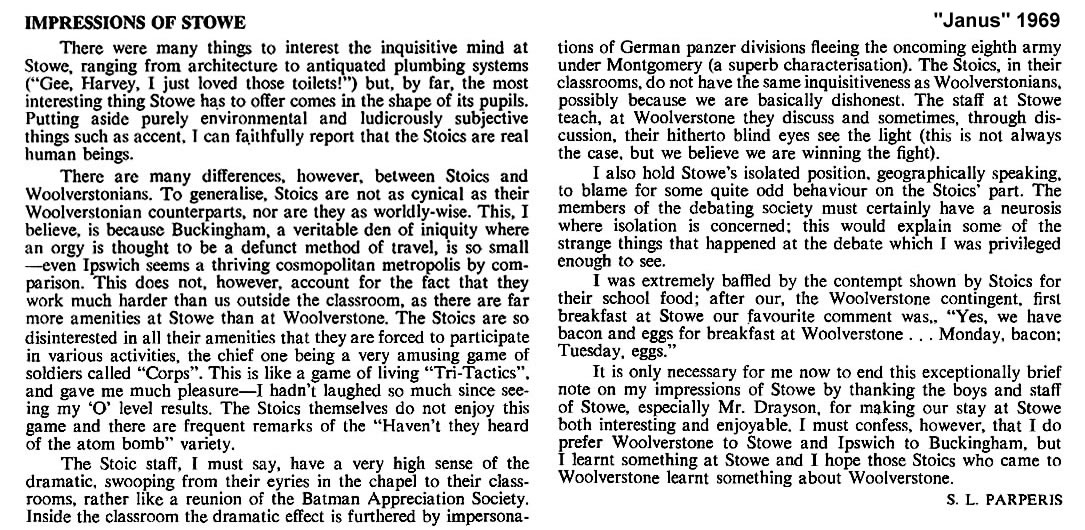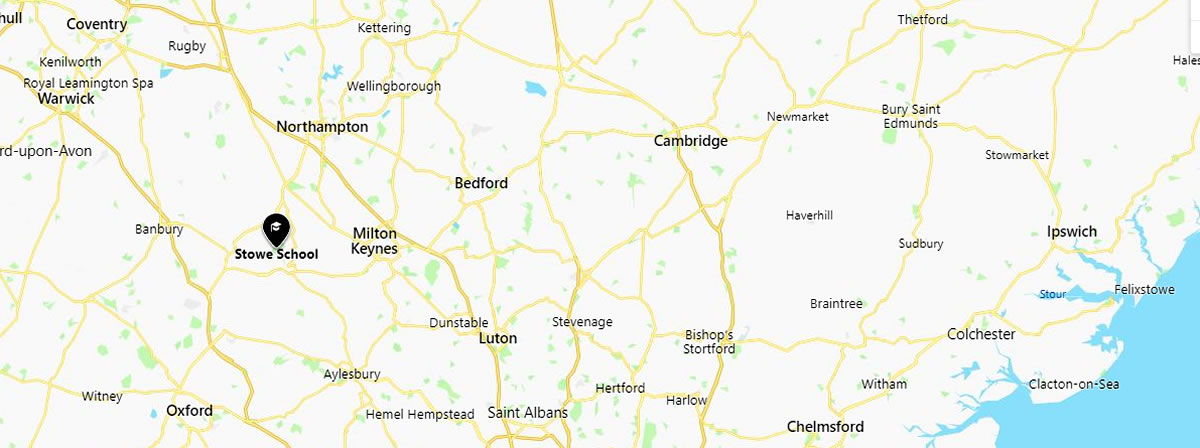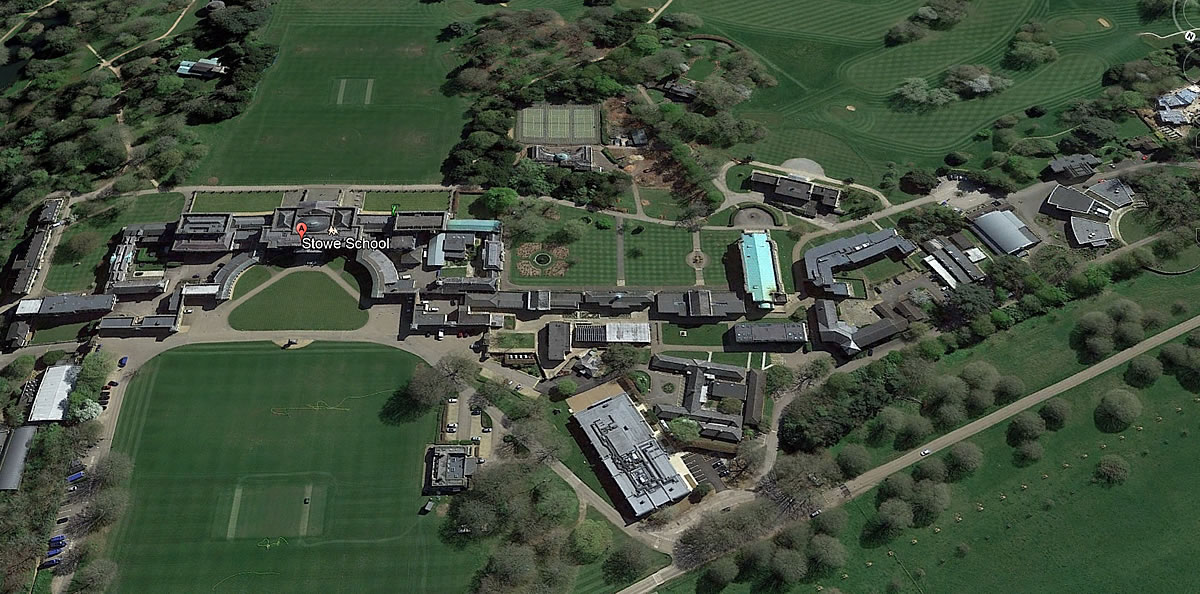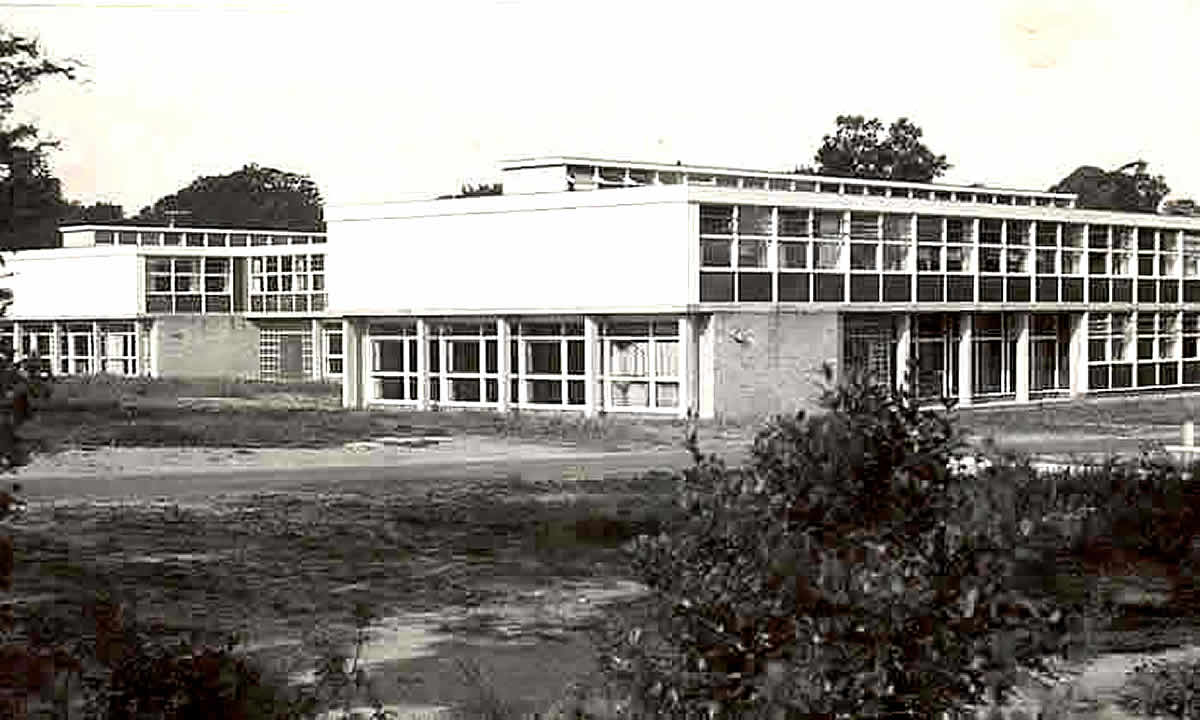The Traveling Scholarships - Chris Snuggs - Berners/Halls '58 to '64
(* indicates some photos available on clicking - not mine!)
The ILEA ran a scheme called “Traveling Scholarships”, but I can find no reference to this using Google, including searching the ILEA archives. It is also something that seems to have lived under the radar in “Janus”. If anyone can add more information that would be great.
It was, however, pretty awesome for those involved, and that included me. Basically, a very small number of boys sponsored by their school were awarded a grant and organizational help to embark on a three-month stay in France. I say France, but it may have included Germany, too as far as WHS was concerned, since we could obviously study German there; I am not sure on this point.
The details of how all this came about are lost in the mists of time and memory, but I am assuming that Stretch must have put my name forward. I had had him for French in classes 1B and 2B, and in the third year I was promoted to 3A, which was also taught by him, as were the rest of my French classes at WHS - six years in all. I don’t remember him discussing it with me or how it came to be notified to me - nothing! But I do remember the stay itself.
CALAIS: The remarkable and clever thing was that boys involved stayed in four different places in France for three weeks each, starting with a three-week stay in Calais to follow classes in French and French culture to prepare us for the following nine weeks. Calais does not sound particularly exotic, but is in fact a town steeped in history and of course close contact with England. I remember staying in a student hostel somewhere, in a dorm much like those at WHS. That summer the weather was good, and I remember many of us spending more than one night on the beach. There were other nationalities there, too, and I met an American girl called Letha Rood. Never forgot her name, and I never saw or heard from her after the three weeks was up, but she was really very sweet.
*CHAMBON-SUR-CISSE: After that, we set off on our own to different destinations in France. I must have been only 17 at the time and this was my first trip abroad, so it was a big adventure. My second stay was in a hamlet outside a small village called Chambon-sur-Cisse near Blois. I was one of about 12 kids in a holiday hostel. It was very rural, and some way from the village of Chambon itself, which I don’t remember visiting much. The hostel wardens set us to work cutting a ledge on a hillside on which to put up a very large tent. I seem to remember this taking us a couple of weeks of hard work in the mornings. In the afternoons, they took us out and about in the area, including visits to several chateaux, walks along the Loire and so on. It was very exciting. I don’t remember much, but for some reason I do remember someone introducing me to the music of Adamo, which was new to me at the time. Then there was this girl I bumped into by chance who was staying not with the rest of us in the hostel itself but privately with a family called Froger about 200 yards away; funny how I remember the name. Mme Froger was the sister of the Chief Warden of the hostel where I was staying and it turns out that they had had a furious row which had turned into a long-lasting feud. I used to sneak off to see this young lady, who told me that the warden would be very cross if he found out I was visiting his feuding sister. All very cloak-and-dagger stuff, but quite excitingly melodramatic.
*CHAMPLITTE: Well, three weeks passed by pretty quickly - we being so busy morning afternoon and evening - and in my case at night on several occasions - and then we were suddenly all saying goodbye and off on our travels again. My next stop was a tiny village called Champlitte, near Gray in Bourgogne-Franche-Comté, Eastern France. This was in the middle of nowhere, and my only memory is of cows being driven along the unmetalled roadlet that went past by bedroom window - the flies were everywhere. It is weird, but my mind is a complete blank. What on earth did the three of us there DO? I don’t remember the family taking us anywhere; I don’t remember working in the fields; I don’t remember ANYTHING!
*AIX-EN-PROVENCE: So, it was a blessing when I finally left for my last port of call, which was Aix-en-Provence. This was a very different kettle of fish. Aix is delightful; lots of pretty little squares with fountains; very animated with many students and tourists. But most of all, I was on my own with a super family who took me all over Provence: Aigues-Mortes, Les Saintes-Maries de la Mer, Mont Ventoux, Arles, Avignon, Nimes and once to Marseilles. It was such an adventure, and SOOOO kind of them.
Evenings were lovely, too. That was the first time I really experienced French cuisine, and was initially stunned when Madame kept bringing in each dish separately from the kitchen (as they do - or at least used to - in France), me being used to having everything heaped on a single plate in one go as we do. One evening I remember watching with them one evening an old film: “The Ghost Goes West”, which I had seen in England. Funny the things that stick in the mind.
It was a long train ride back to England. How did I manage such a long journey throughout France for three months all on my own? Money, luggage and multiple train tickets to look after ...... it all seemed kind of natural at the time, but I am quite impressed that I survived it all without needing Mummy! I suppose it was the equivalent of today's backpacking in a gap-year, but for the time it was pretty adventurous.
This was an awesome highlight of my WHS career, and I owed a huge debt of gratitude to Stretch and whoever it was in County Hall who came up with and got financing for this scholarship scheme; I guess we will never know. I can’t find any reference to it, but I wouldn’t be surprised if the amazing Irene Chaplin had something to do with it.
http://www.whs-archives.net/staff/mem/ic/def.htm
| OTHER TRAVELING SCHOLARSHIP AWARDEES |
- 1968: George Egan - Berners '63 to '68
|
TO BE COMPLETED |








